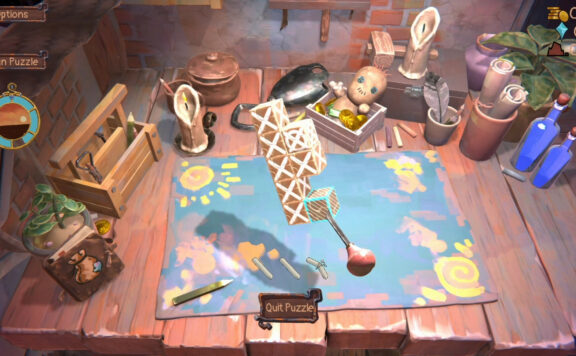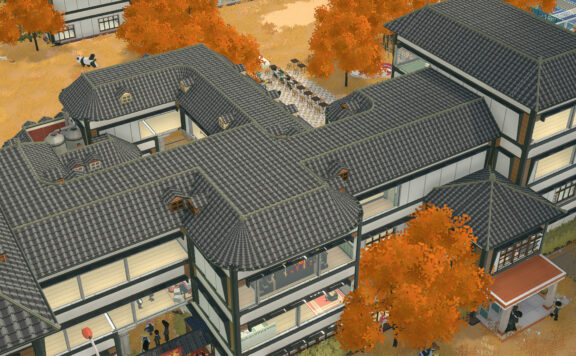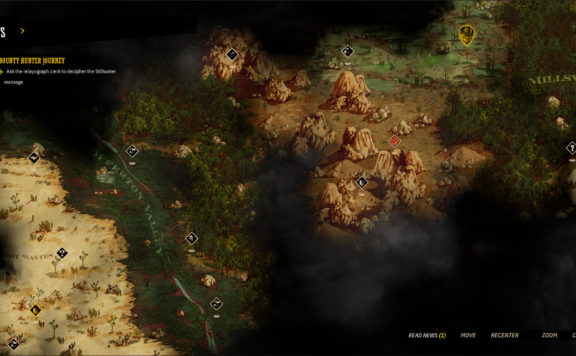The holidays are over and it’s back to the grind for plenty of us, whether that means good old Molten Core or just hitting the books. Even if you’re not heading back to the school yard in 2023 you’ll want to prepare to test yourself in Pathea Game’s Let’s School. After an initial announcement from the team that built My Time at Sandrock, this upcoming adventure is busily preparing for a whole host of students to attend its launch.
While Let’s School might not initially seem like too much of a diversion for Pathea’s laid back library of sims, Let’s School take’s that simulation style and navigates a very different path. Pathea producer Lanka worked on Let’s School as a prototype for around 18 months, putting potential players in the role of a new school headmaster who must bring knowledge and a little joy to the lives of prospective students.
My Time at Portia and My Time at Sandrock have a somewhat wild west frontier fantasy feel. The atmosphere of Let’s School feels a little closer to home. How much of your own school life experiences are in this game?
The content and theme for Let’s School is really different from the My Time series. Though they are all simulation games, the specific experience has vast differences. There were really two big reasons for making the game. One was to bring back some of those old experiences of when I was back at school, and the other was to bring to life some of the classic scenes of school in my favorite anime, manga, and games. Since the modern education systems in China, Japan, and some other Asian countries have similar experiences, I mixed their elements together. I think it’s something that really shines.
Do you think those personal experiences will translate well with global audiences?
To be honest, I’m not sure. There are bound to be many conceptual differences between Asian and Western education. The only thing I can do is express my understanding of Asian education. But still, I think lots of it won’t be unfamiliar to Western players since loads of anime, manga, and novels containing Asian school elements are still really popular over there, such as K-ON!, Nichijou, and even EVA. Actually, I think this kind of content which offers a different perspective than western mainstream culture will be a breath of fresh air.
The details so far talk about managing the school in different Eastern and Western influenced styles. How does that unfold in game?
So this is something that I’d like to clarify. We are firstly focusing on Asian-style schools, rather than international schools, but we do plan on expanding this post-release. We will try to cater for the different regions systems, to make things more relatable to their experiences. For example, in China, we tend to use excellent, medium, or poor to record test results, whereas in many Western regions, they use ABCD.

How deep does the customization go? I am intrigued about how many dialogue options I’ll get for exam speeches
In regards to customization, our game’s framework can already support many options. But we will focus on content development first and consider what content to be added for players to customize based on user feedback after the game enters the market.
In regards to the speech, it will have some themes, and there are some different options following them, and more options may even come from your items or some random events. The speech will happen once a week. Players can upgrade the speech hall (演讲厅) to get more topic slots which means you can choose several topics at once, and players can also collect various topics during normal gameplay.
With any management game you will want to build a school, hospital, or theme park, but schools are more than just about money in and money out. How important are student relationships in the game?
We hope that players can choose their own management styles, and try to let headmasters decide how to run their school, and face different situations and consequences themselves. The game does simulate the relationship between students, which means students can build their own social circle and find friends or sweethearts. Players can arrange some social events to give their relationships a boost. This is currently one of the areas we wish to develop, and are eager for more suggestions.
Talking of learning, are there overlaps between the design and creation of the My Time at games that helped when building this school?
Some design concepts like simulation elements and gameplay are inherited from My Time Series. It’s more like a development culture. We use similar concepts to create games. For example, we hope to give players more gameplay options, not only sticking to a rigid structure, but trying to integrate other gameplay experiences. For instance, Let’s School has a god-like perspective. But you can also play as the principal directly and visit the school you built in third-person while you can interact with students.

Everybody has a subject they hated at school. Do the students in Let’s School have their own favorite subjects?
As a simulation game with a large number of characters, there may be hundreds of students in the late game. We will not make every student different but will classify them into various categories with the same strengths and weaknesses. For example, some students are not good at science. Players need professional teachers, items, or facilities to resolve these problems. So the real job of a principal is to manage the differences between all these students, and do what’s best for them.
While we might have loved attending Knight Class or reaching for the stars in Two Point Campus, Let’s School takes traditional school daze and adds its own whimsical twist, inviting audiences to find out what it takes to foster young minds and make it through another day behind the desk of a headmaster. This intriguing indie semester opens for business soon. Keep up to date over on the Let’s School Steam Store page now.







